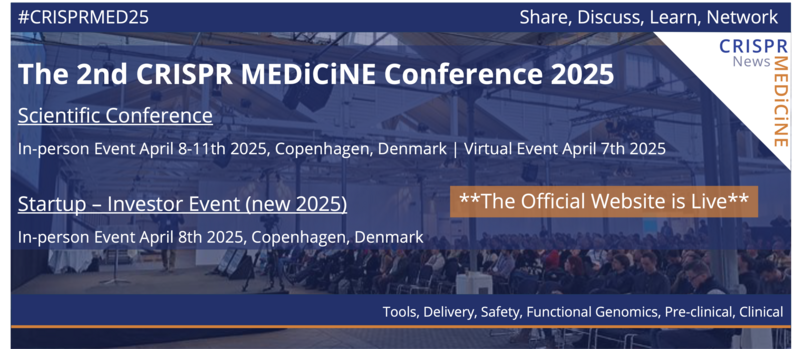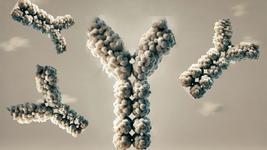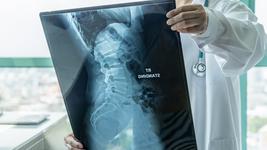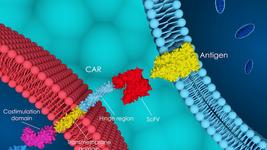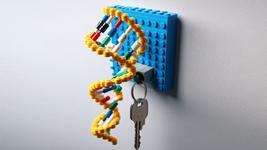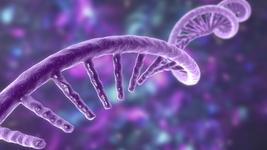Latest Updates From the Gene-Editing Clinical Trials
Positive data from first two patients treated in Editas' RUBY trial of EDIT-301 in sickle cell disease
Yesterday, Editas Medicine announced positive safety and efficacy data from the first two patients dosed in its RUBY trial for the treatment of severe sickle cell disease (SCD).
The ongoing Phase 1/2 Ruby trial is evaluating EDIT-301, an autologous (i.e. patient-derived) CRISPR-edited cell therapy, for the treatment of SCD. EDIT-301 is designed to be a one-time treatment for SCD that works by reactivating foetal haemoglobin (HbF) production, thereby compensating for the lack of functional adult haemoglobin in individuals with SCD.
EDIT-301 is developed using a CRISPR-Cas12a ribonucleoprotein to enhance the HBG1/2 promoter region in the beta-globin locus of patient-derived haematopoietic stem cells (HPSCs). Naturally-occurring HbF-inducing mutations at the HBG1/2 region support the clinical relevance of using gene editing to enhance the HBG1/2 promoter, and this strategy has been shown to increase the red blood cell levels of HbF. EDIT-301 is the first experimental medicine in development using CRISPR-Cas12a gene-editing technology.
The data released yesterday revealed successful neutrophil and platement engraftment by 29 days and 37 days, respectively, in both patients dosed so far with an EDIT-301 infusion. The company also reported that neither of the patients experienced any vaso-occlusive events (VOEs) since treatment with EDIT-301, at five and 1.5 months follow up, respectively. VOEs are the most commonly encountered complication in severe SCD, and these occur when small blood vessels get blocked because of sickled red blood cells which tend to be stiffer than healthy cells, and because the defective form of haemoglobin seen in SCD (haemoglobin S) renders the red blood cell membranes sticky.
Five months after treatment with EDIT-301, both patients exhibited an increase the levels of HbF, and the safety profile overall was consistent with autologous haematopoietic stem cell transplant and the necessary pre-conditioning regimen. No serious adverse events occurred, and no adverse events reported were related to treatment with EDIT-301.
In August 2020, the company was granted Rare Pediatric Disease Designation for EDIT-301 as a potentially best-in-class treatment for SCD in children from birth to 18 years.
First PD-1 knockout CAR-T cell therapy gets special FDA designations for the treatment of lymphoma
Caribou Biosciences announced in a press release published last week that the U.S. Food and Drug Administration (FDA) has granted Regenerative Medicine Advanced Therapy (RMAT) and Fast Track Designations to its lead candidate, CB-010, for the treatment of relapsed or refractory large B cell lymphoma and non-Hodgkin lymphoma, respectively. These designations come following CB-010’s durable complete responses at dose level 1 in the ongoing ANTLER Phase 1 trial.
Regenerative Medicine Advanced Therapy (RMAT) and Fast Track Designations
The FDA's RMAT designation is a dedicated programme designed to expedite the drug development and review processes for promising pipeline products, including genetic therapies.
The FDA's Fast Track process is designed to facilitate the development and speed up the review of certain drugs to treat serious conditions and fill unmet medical needs.
CB-010 is an allogeneic anti-CD19 CAR-T cell therapy, derived from healthy donor T cells that are genome-edited using the company's next-generation CRISPR-Cas technology, which is based on CRISPR hybrid RNA-DNA (chRDNAs).
Specifically, a CD19-specific CAR is inserted into the TRAC gene, which encodes the T cell receptor alpha constant. The PD-1 gene is also deleted in these cells. This gene encodes the PD-1 protein that functions as a safety switch on T cells that cancer cells turn on to protect themselves from T cell-mediated immune responses. CB-010 is the first allogeneic CAR-T cell therapy with a CRISPR-mediated PD-1 deletion to be cleared for a clinical trial.
According to the company’s press release, the ANTLER Phase 1 trial is now enrolling patients at dose level 2 following a promising initial safety profile. Read more about CB-010 in our previous clinical updates here and here.
For a complete overview of current gene editing clinical trials, check out CRISPR Medicine News' Clinical Trials Database.
Read also: Disease Roundup: Genomic Medicine Candidates for Sickle Cell Disease
This roundup presents the 7 clinical-stage gene-editing approaches to sickle cell disease, which affects millions of people worldwide and is the most common inherited blood disorder in the United States. Current clinical-stage approaches to treating this disease include CRISPR-Cas9, CRISPR-Cas12a, and base editing.
To get more of the CRISPR Medicine News delivered to your inbox, sign up to the free weekly CMN Newsletter here.
Tags
ArticleNewsClinical News UpdatesCaribou Biosciences, Inc.Editas Medicine, Inc.
CLINICAL TRIALS
Sponsors:
Wave Life Sciences Ltd.
